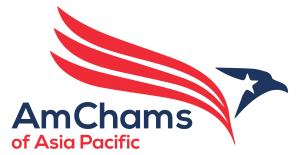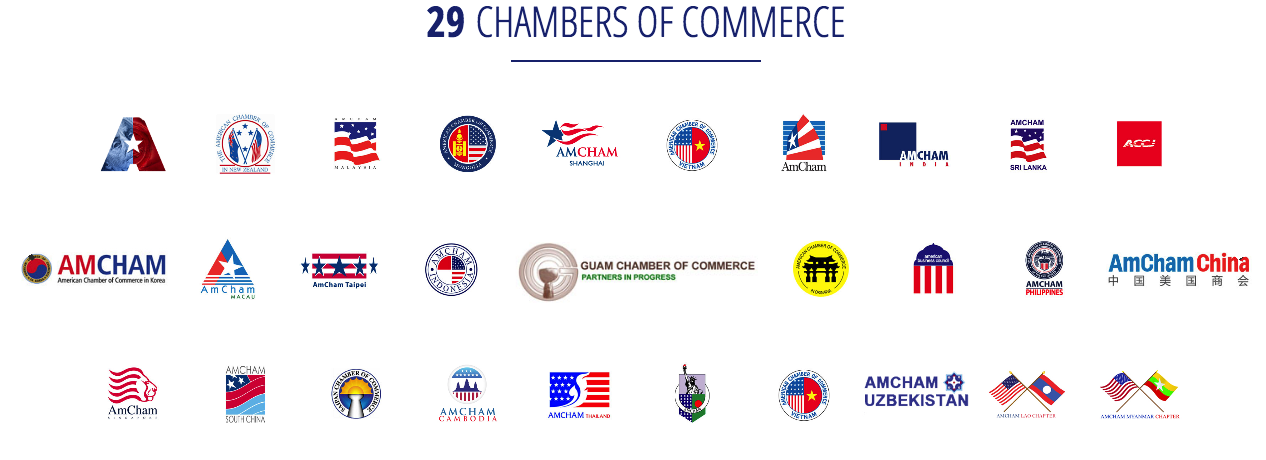
AAP
AAP (formerly known as the Asia-Pacific Council of American Chambers of Commerce) was formed in 1968. Through 29 independent members AMCHAM’s located in 22 economies of the Asia-Pacific Region, AAP represents the growing interests of over 15,000 business entities, over 50,000 American business executives in the region, and 15 million employees. The AAP membership manages trade volumes in excess of US$600 billion. As part of AAP, AMCHAM members gain access to regional resources and referrals within the network. Learn more here.

AAP Mission Statement
AAP’s mission is to improve the competitiveness of U.S. business in the Asia-Pacific region.
AAP members combine their resources and knowledge to develop a common understanding of regional issues, problems, and concerns facing the American business community in Asia-Pacific. Member chambers communicate on an ongoing basis and gather annually, in March, to discuss and adopt positions on priority issues. A strategy is developed for expressing and giving effect to our opinions on each issue. AAP identifies organizations with mutual interests and pursues a course of action to disseminate and communicate our positions to relevant governments and other organizations.
AAP meets annually with U.S. Government decision-makers during a “Washington Doorknock” in June, when AAP’s chairman leads a delegation to the Nation’s Capital. Meetings are held with leaders of Congress and senior members of the Administration. AAP’s annual trip increases the U.S. Government’s awareness of American business activities and concerns in the region. Mutually beneficial relationships are established, and areas of cooperation are identified. AAP is well-received at the highest levels.
In addition, during the course of the year, AAP delegations meet with the U.S. government and business leaders visiting the Asia-Pacific region to discuss trade and investment issues that affect the competitiveness of American business. AAP also maintains regular communication with high-level host country government officials through its member AmChams. AAP issues include: support for Trade Promotion Authority and free trade agreements; taxation of U.S. citizens working abroad (section 911 tax exclusion); removal of technical and administrative barriers to trade; opposition to unilateral sanctions and other trade and investment issues.
APCAC Events & Meetings
Washington Doorknock
Every year, AmCham leaders from the AAP met with the Executive Branch and Congressional leaders in Washington, DC to advocate on behalf of Americans abroad during AAP’s annual Washington meeting, known as the AAP Washington Doorknock.

